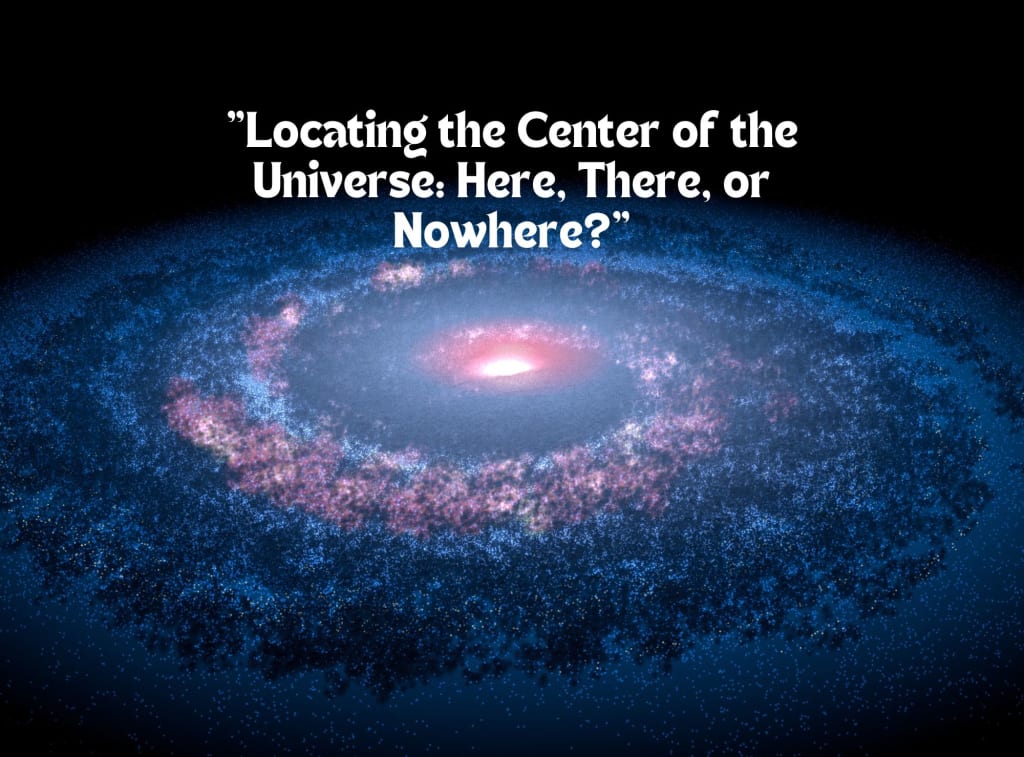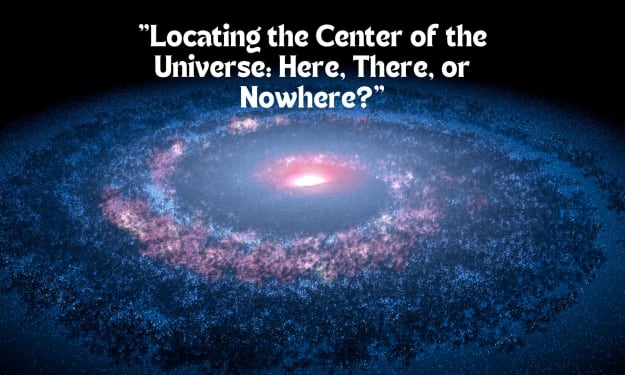Content warning
This story may contain sensitive material or discuss topics that some readers may find distressing. Reader discretion is advised. The views and opinions expressed in this story are those of the author and do not necessarily reflect the official policy or position of Vocal.
"Locating the Center of the Universe: Here, There, or Nowhere?"
Determining the central point of the universe.

The idea that the universe began with a Big Bang explosion around 13.8 billion years ago is widely accepted in cosmology. According to our current understanding, the universe has been continuously expanding since then. However, this expansion is not like a typical explosion where material moves outward from a central point.
In 1929, Edwin Hubble discovered that galaxies located at different distances from Earth were moving away from us, and the farther they were, the faster they were receding. This observation led to the idea that the universe is expanding uniformly in all directions, making it appear as though every observer is at the center of the expansion. So, it's not that we are at the actual center of the universe; rather, the universe is expanding equally from all points.
The Big Bang was not like a conventional explosion. According to the prevailing theory, there was no space and time before the Big Bang, which makes it fundamentally different from any explosion we are familiar with. There is no central point of origin in the sense of a physical location; instead, space itself was expanding everywhere simultaneously.
The concept that the universe should have a center and an edge is based on our everyday spatial intuition, but the universe is not bound by our intuitive understanding. The idea that the universe should be uniform in all directions is known as the cosmological principle, and it suggests that the universe looks roughly the same from every vantage point.
Our observations of the universe are limited by the speed of light, and even though the observable universe is vast, it is a tiny fraction of the entire universe, which may be infinite in extent. This means that there could be regions beyond our observable universe that we cannot see.
The idea of a "center" of the universe may not be applicable in the vast cosmic scale. The observable universe consists of galaxies, stars, planets, and other cosmic structures, but it has a boundary beyond which we cannot observe anything. The universe could have various shapes, and even if it had a center beyond the visible universe, it might be just one of many such points.
Before the discovery of galaxies beyond our Milky Way, there was a debate about whether our galaxy was at the center of the universe. However, Edwin Hubble's work showed that there are many galaxies beyond our own, dispelling the notion that we occupy a central position in the cosmos.
Our perception of the universe is constrained by the finite speed of light. Despite the vastness of the observable universe, it is still a relatively small part of the entire universe, and there may be much more beyond what we can currently see.
The concept of a "multiverse" suggests that there could be other universes beyond our own, each with its own set of physical laws and properties. These parallel universes could have different configurations, making them potentially very different from our own universe.
The idea of a parallel universe or a "white hole" connecting to another universe remains speculative and is not currently supported by observational evidence. It is a topic of ongoing scientific exploration and theoretical investigation.
In summary, our understanding of the universe has evolved significantly, and the concept of a central point or edge to the universe is not consistent with modern cosmological theories. The universe is vast, expanding, and may have properties and regions beyond our current observational capabilities. The possibility of a multiverse or connections between universes is a topic of ongoing scientific research and speculation.
About the Creator
Safira Rodrigues
Discover precision and brilliance in my articles. Trust the accuracy and enjoy the awesomeness. I've poured my heart and soul into crafting content that's not just informative, but a captivating journey for your mind. Read now!





Comments
There are no comments for this story
Be the first to respond and start the conversation.